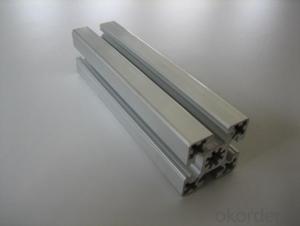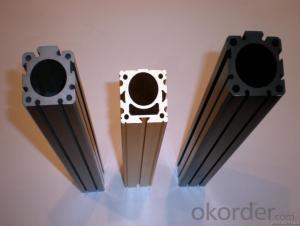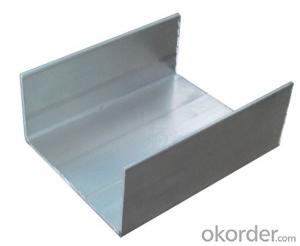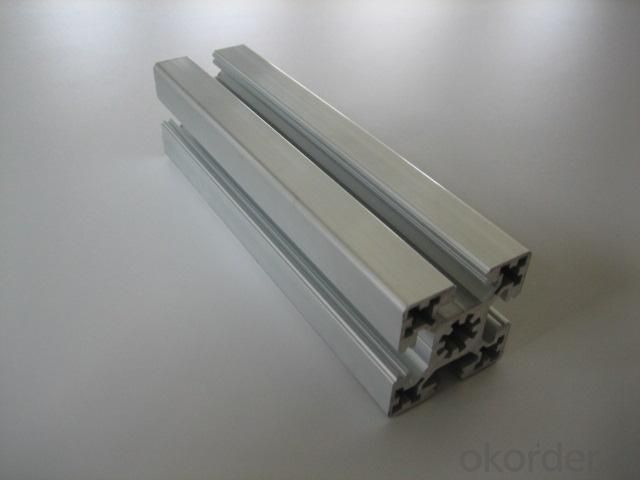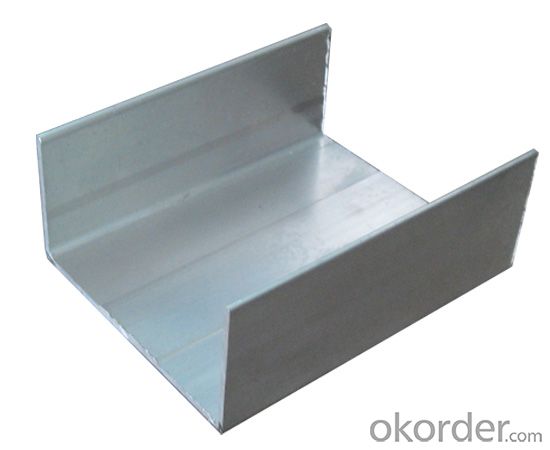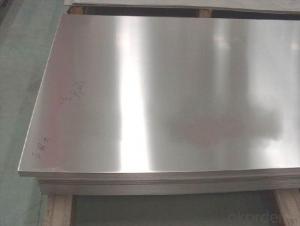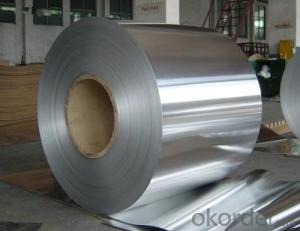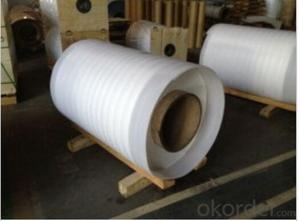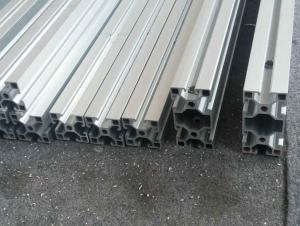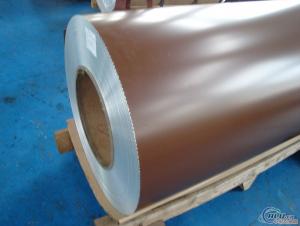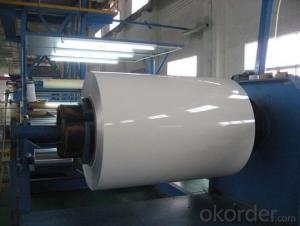Coiled Aluminum Sheet for Customized Closet Door Profiles
- Loading Port:
- Shanghai
- Payment Terms:
- TT OR LC
- Min Order Qty:
- 20 m.t.
- Supply Capability:
- 2000 m.t./month
OKorder Service Pledge
OKorder Financial Service
You Might Also Like
1.Structure of Customized Aluminum Profile for Closet Door Description:
Customized Aluminum Profile for Closet Door (also spelled anodising, particularly in the UK and Australia) is an electrolytic passivation process used to increase the thickness of the natural oxide layer on the surface of metal parts. Anodized aluminium surfaces, for example, are harder than aluminium but have low to moderate wear resistance that can be improved with increasing thickness or by applying suitable sealing substances.
2.Main Features of the Customized Aluminum Profile for Closet Door:
High corrosion-resistance;
weather-resistance;
heat-resistance;
alkali-resistance and impact-resistance properties.
3.Customized Aluminum Profile for Closet Door Images:
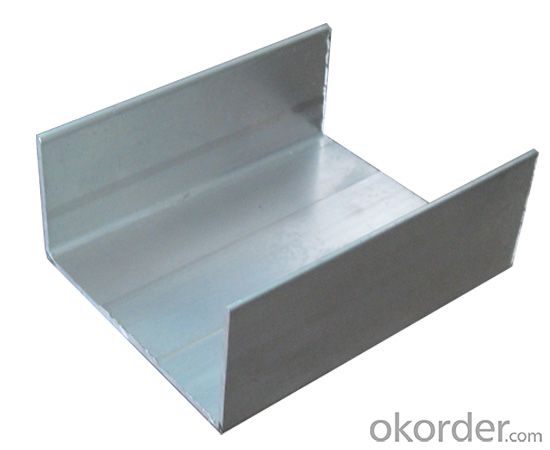
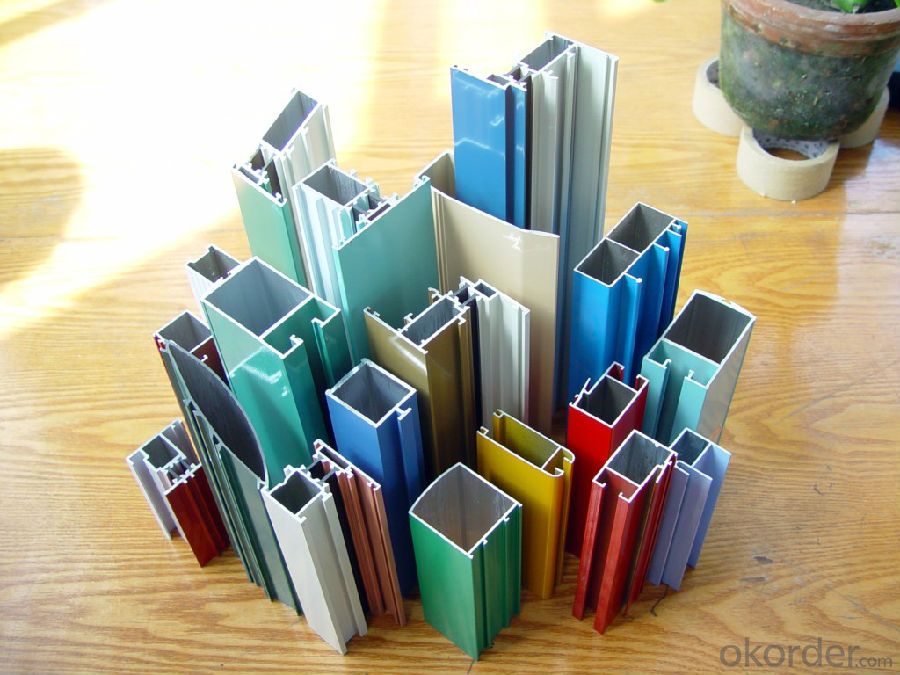
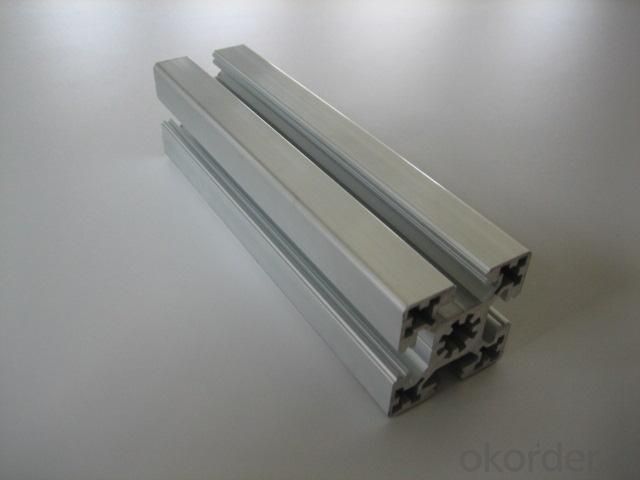
4.Customized Aluminum Profile for Closet Door Specification:
1. Material: 6063,6061,6060,6005,6005A,etc.
2. Temper: T5 or T6
3. Finish: Mill finish, anodizing, powder coating, electrophoresis, wooden transfer or pvdf/carbon-flouride coated, polishing, brushing, sand blasting
4. Various colors: Silver, bronze, black, gold, blue, grey, champagne, bright, etc.
5. Machining: Cutting, punching, drilling, tapping, milling, bending, welding, CNC etc.
5.FAQ:
①How about your company?
A world class manufacturer & supplier of castings forging in carbon steel and alloy steel,is one of the large-scale professional investment casting production bases in China, consisting of both casting foundry forging and machining factory. Annually more than 8000 tons Precision casting and forging parts are exported to markets in Europe, America and Japan. OEM casting and forging service available according to customer’s requirements.
②How to guarantee the quality of the products?
We have established the international advanced quality management system,every link from raw material to final product we have strict quality test;We resolutely put an end to unqualified products flowing into the market. At the same time, we will provide necessary follow-up service assurance.
- Q: This question asks for a comparison between steel wires and other materials when used in coilings, highlighting the pros and cons of steel wires.
- <p>The advantages of using steel wires for coilings include high tensile strength, durability, and resistance to corrosion. Steel wires are also cost-effective and widely available. They offer excellent fatigue resistance, making them suitable for applications requiring repeated coiling and uncoiling. Disadvantages include higher weight compared to some alternatives, which can be a concern in certain applications. Steel wires can also be prone to rust if not properly treated, and they may not be as flexible as some other materials, potentially leading to difficulties in handling or installation. Additionally, steel's magnetic properties can be a disadvantage in environments where non-magnetic materials are required.</p>
- Q: This question asks about the economic impact of aluminum coils, which are a key material in various industries.
- <p>Aluminum coils significantly impact the economy by driving growth in various sectors. They are vital in construction, automotive, aerospace, and packaging industries due to their lightweight, durability, and recyclability. The aluminum coil market stimulates manufacturing, job creation, and technological advancements. Additionally, their high demand supports the growth of the aluminum industry, influencing trade and contributing to GDP. The recycling of aluminum coils also reduces energy consumption and environmental impact, further benefiting the economy by promoting sustainable practices.</p>
- Q: How much does it cost to use fluorocarbon paint for aluminum coil roller coating?
- Fluorocarbon paint can be divided into fluorocarbon paint for exterior wall, aluminum fluorocarbon paint, metal fluorocarbon paint and steel structure fluorocarbon paint according to usages. It can also be divided into national standard product and non-national standard product according to industrial standards.
- Q: need to know the procedure for removal of aluminum windows with brick trim
- 1st off let`s determine what kind of windows you have. Examine the inside of the jambs. Are there any screws going through the jamb into the rough opening? If so you have a masonary style window. Chances are they can be removed relatively easily. Most the time removal of fastners,scoring of drywall and caulk and they practically fall out (sometimes). You may find removal of the sash and remaining glass, then collasping the frame will work best. This technique is a must if you have the other breed of window, the flanged. You can ID this window by measuring the inside and out . If they`re the same, it`s flanged. I`ve found 99 time out of 100 these windows can be collasped. Once again remove sash and all glass. Here`s where the sawsall comes in. Remove the center bar. Drive a flat bar under the sill from the exterior. Pry it up as high as you can. Cut the sill. Now drive the flat bar between the side jambs and the brick and start prying. Most of the time these windows are only nailed on the corners, sometimes the fin will rip from the jamb. But in the end the removal will be accomplished. If you find you need to pry from the interior, don`t pry against drywall. Put a piece of wood under your bar to protect the drywall. NEVER! pry on tile or marble. I`ve removed literally thousands of these little buggers. Can`t only remember maybe a handful of times I had to cut a flange. GOOD LUCK!!!!!
- Q: 1) Do you recycle aluminum (soda cans, etc.)?2) Why do or don't you recycle aluminum?3) Does it make a difference to the economy whether we recycle or not?4) Does it make a difference to the environment whether we recycle or not?5) What do you think would help people to recycle more? Such as a reward, information, resources, etc. Don't feel the need to limit responses. Thank you.
- 1) Yes, I recycle aluminum. 2) I recycle to help from having to have so much in garbage dumps and to get a little extra cash. 3) I feel that recycling helps the economy by reusing aluminum and not having to spend so much time money manufaturing new aluminum and creating some jobs in the recycling field. 4) Recycling aluminum helps the environment by having less aluminum in land fills or alongside the roads. 5) I think more people would recycle aluminum if there was a reward or if you could get a higher price for the aluminum when recycling. Too many people feel the amount of money they can get for reycling aluminum, is not worth their time or the trouble.
- Q: What benefits does anodized aluminum offer when compared to regular aluminum coils?
- <p>Anodized aluminum coils offer several advantages over standard ones. They have enhanced corrosion resistance due to the protective oxide layer formed during the anodizing process. This layer also improves wear resistance and increases the coil's durability. Anodized coils can be easily colored, providing a wide range of aesthetic options without affecting the material's performance. Additionally, the anodized surface is more resistant to scratches and can maintain a polished appearance longer. Overall, anodized aluminum coils are more robust, visually appealing, and longer-lasting compared to standard aluminum coils.</p>
- Q: What are the environmental benefits of using aluminum coils?
- There are several environmental benefits of using aluminum coils. Firstly, aluminum is a highly sustainable material. It is one of the most abundant elements on Earth and can be easily extracted from bauxite ore. Unlike other metals, aluminum can be recycled indefinitely without losing its physical properties. This means that using aluminum coils helps reduce the demand for extracting new resources and minimizes the environmental impact of mining activities. Secondly, aluminum is lightweight, which makes it more energy-efficient during transportation. Its low weight reduces fuel consumption and greenhouse gas emissions associated with shipping and logistics. Additionally, aluminum coils can be easily formed and shaped, which allows for efficient packaging and reduces the need for excess materials. Furthermore, aluminum has excellent thermal conductivity properties. This means that aluminum coils can efficiently transfer heat, resulting in more energy-efficient heating and cooling systems. By using aluminum coils in HVAC systems or heat exchangers, energy consumption can be reduced, leading to lower carbon dioxide emissions and a smaller carbon footprint. Additionally, aluminum is highly resistant to corrosion and can withstand harsh weather conditions. This durability ensures a longer lifespan for aluminum coils, reducing the need for frequent replacements and minimizing waste generation. Lastly, aluminum is non-toxic and poses no threat to human health or the environment. It does not release harmful substances or pollutants during its production or use. This makes aluminum coils a safe and environmentally-friendly choice for various applications. In summary, the environmental benefits of using aluminum coils include its sustainability, recyclability, lightweight nature, energy efficiency, durability, and non-toxicity. By opting for aluminum coils, we can contribute to resource conservation, energy savings, and a healthier planet.
- Q: Is it possible to utilize a grinder to smooth out or remove a damaged area on a steel coil?
- <p>Yes, you can use a grinder to grind down a damaged section of a steel coil. However, it's crucial to use the appropriate type of grinder designed for metalworking and to ensure safety precautions are taken, such as wearing protective gear. The grinder should be capable of handling the hardness of the steel and should be operated by someone experienced with such equipment. Always follow the manufacturer's guidelines and safety standards to prevent accidents and ensure the effectiveness of the grinding process.</p>
- Q: Can aluminum coils be used in signage applications?
- Yes, aluminum coils can be used in signage applications. Aluminum is a popular material for signage due to its durability, lightweight nature, and resistance to corrosion. It can be easily formed into various shapes and sizes, making it suitable for different types of signage, including billboards, nameplates, and outdoor signs. Additionally, aluminum can be painted or laminated to achieve different visual effects and enhance the overall appearance of the signage.
- Q: Is it possible to utilize aluminum coils in the packaging of food products?
- <p>Yes, aluminum coils can be used for food packaging. They are commonly used in the production of aluminum foil, which is a popular material for food packaging due to its properties such as light weight, barrier to light and oxygen, and recyclability. Aluminum foil is used to wrap food, line baking sheets, and create containers, providing a protective barrier that helps to preserve freshness and extend shelf life. However, it's important to ensure that the aluminum used meets food-grade standards to avoid any health risks.</p>
Send your message to us
Coiled Aluminum Sheet for Customized Closet Door Profiles
- Loading Port:
- Shanghai
- Payment Terms:
- TT OR LC
- Min Order Qty:
- 20 m.t.
- Supply Capability:
- 2000 m.t./month
OKorder Service Pledge
OKorder Financial Service
Similar products
Hot products
Hot Searches
Related keywords
